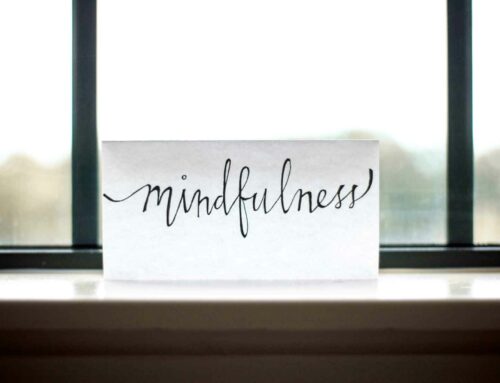As the days grow shorter and temperatures plummet, you may find yourself with a case of the winter blues. This is totally normal and something a lot of people struggle with every year! Many things can contribute to you feeling down, but the lack of sunlight and colder weather can also impact mood and well-being.
In such times, finding strategies for coping can be very helpful. We introduce to you, the Dialectical Behavior Therapy (DBT) skill, ACCEPTS. Let’s explore how these skills can brighten your winter days!
ACCEPTS: A Brief Overview
ACCEPTS is an acronym within the DBT framework, designed to assist individuals in managing challenging emotions. Each letter represents a specific skill set, and when applied thoughtfully, they can contribute to improved emotional regulation.
Activities: Engaging in activities is a powerful way to combat the winter blues.
Plan enjoyable and meaningful activities that align with your interests. This might include indoor hobbies, creative pursuits, or even outdoor activities if the weather allows. The key is to stay active and occupied to ward off feelings of lethargy and sadness.
Contributing: Contributing to others can create a sense of purpose and fulfillment.
Consider volunteering, reaching out to friends or family, or finding small ways to help those in need. Acts of kindness not only benefit others but can also boost your own mood and sense of connection.
Comparisons: Practice putting things into perspective by making positive comparisons.
Instead of focusing on what you lack during the winter months, compare the positive aspects of the season to others. Appreciate the beauty of winter landscapes, cozy moments indoors, and the unique opportunities the season brings.
Emotions (Opposite Action): Opposite Action is a core concept in DBT.
Identify negative emotions associated with winter blues and intentionally engage in behaviors opposite to those. If you’re feeling withdrawn, make an effort to socialize. If you’re experiencing sadness, engage in activities that typically bring joy.
Pushing Away: Sometimes, it’s beneficial to push away distressing thoughts temporarily.
Create a mental “box” to contain worries or negative thoughts and set them aside for a designated period. Use this time to focus on positive activities, allowing yourself a break from the winter blues.
Thoughts: Redirect your thoughts away from distressing topics.
Choose to focus on positive, uplifting, or neutral subjects. Practice mindfulness to stay present and avoid getting caught up in negative thought patterns. This can help create a more positive mindset during the winter months.
Sensations: Engage your senses to improve your mood.
Surround yourself with pleasant scents, textures, and sights. Enjoy a warm cup of tea, indulge in comforting blankets, or listen to soothing music. By heightening your sensory experience, you can counteract the dreariness often associated with winter.
Using the ACCEPTS skills provides a holistic approach to combating the winter blues. By incorporating these strategies into your daily routine, you can enhance your emotional well-being, foster a positive mindset, and navigate the winter months with resilience and grace. Don’t forget, that seeking professional help like going to therapy is also a valuable option.
Embrace the opportunities that winter offers, and remember that small, intentional actions can make a significant impact on your mood and overall mental health!





